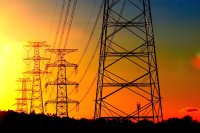Water losses in the national supply network exceed 50%, while climate change is further worsening the situation.

More than 170 settlements across 60 municipalities are currently under water restrictions, according to data from experts at the Bulgarian Academy of Sciences (BAS). The two main causes are drought and the deteriorated condition of the water supply infrastructure, which results in significant water loss. Speaking on the programme 'Business.BG', the Chairman of the Supervisory Board of the Bulgarian Water Supply and Sewerage Holding confirmed the poor state of the pipes and stressed the urgent need both for their replacement and for more efficient water usage.
The Pernik region and northeastern Bulgaria are emerging as particularly problematic areas. The Pleven region also faces significant water scarcity.
According to the local water utility in Pleven, over 2,000 people are already under water rationing. One of the villages suffering from years of drought is Novachene. Resident Elenka Benova shared that for years she hasn’t been able to use her washing machine or water heater during the summer, relying primarily on a well in her yard:
"It’s a drought—it’s always like this here. The upper part of the village has water, but we down here don’t. I haven’t complained anywhere. When it comes, I use it. In winter, I use the washing machine. Now I can’t."
BNT: "What about drinking water?"
"We buy it. Because when it stops coming, well... we buy it. And sometimes we even drink from the well—like it or not—when there’s no other option."
According to BAS scientists, such droughts are expected to become increasingly common.
Prof. Emil Gachev, BAS: "The number of people and settlements affected could increase significantly. That is why we need to take the necessary measures, because generally the trends are exactly like this - towards a reduction in the amount of rainfall."
Currently, about 100,000 people across 60 municipalities in Bulgaria live under water restrictions. The average level of water in national reservoirs is at 61%, with northwestern Bulgaria experiencing the most critical situation—reservoirs there are down to about a quarter of their usable capacity.
Professor. Emil Gachev, BAS: Prof. Gachev: "Previously, going 10 days without rain felt like a long time. Now, three to four weeks is becoming the new norm. Then we get one day of torrential rain that causes flooding, and the dry stretch returns."
Meanwhile, water is still being wasted across the aging network.
Prof. Gancho Dimitrov, Chairman of the SC of the Bulgarian Water Supply Holding: "In the 60s, water networks were designed in all settlements, as there was a migration of the population from the villages to the cities. However, they were made of poor quality pipelines, these are asbestos-cement pipelines and low-carbon steel pipelines, which are now corroded."
Data from the national water utility also highlight poor management of these networks:
Prof. Gancho Dimitrov, Chairman of the SC of the Bulgarian Water Supply Holding: "The zoning of networks hasn’t been completed. We need designated zones where we can analyze usage—night vs. day consumption—so we can target investments for selective replacement more efficiently."
On average, Bulgaria loses 50% of its water through the system. The worst losses are in the Pernik region (over 80%), while the lowest are in Sofia (36%).
Vasil Trenev, Executive Director, Sofia Water Utility: "In 2010, Sofia extracted 219 million cubic meters of water. Last year, we used 125 million. That’s how much water we’ve saved thanks to various measures."
Even though Sofia has enough water, there are still difficulties with connecting new buildings due to the high pace of construction:
Vasil Trenev, Executive Director of Sofia Water: "There is water in the main system. Sofia’s infrastructure was sized years ago for a population of about 3 million—including drinking water treatment and wastewater facilities. The investment problem is more in the inner city network."
The utility also believes there is untapped potential in regulation and enforcement. According to former Minister of Environment and Water Borislav Sandov, the responsibility for water management is fragmented:
Borislav Sandov: former Minister of Environment and Water: "We have persistent droughts in the southern and eastern parts of the country, particularly the Black Sea coast and the Danube plain. We need new approaches to address these deficits in the future. We also need structural reform of the water governance system—it’s currently split between seven ministries."
Estimates vary widely regarding when the water shortages in Bulgaria will be resolved—and how much it will cost.
 Economy Minister Orders On-Site Checks at Electricity Suppliers Following Surge in Complaints
Economy Minister Orders On-Site Checks at Electricity Suppliers Following Surge in Complaints
 Sunken Fishing Vessel off Sozopol Shows No Breaches or Holes in the Hull, Navy Chief Says
Sunken Fishing Vessel off Sozopol Shows No Breaches or Holes in the Hull, Navy Chief Says